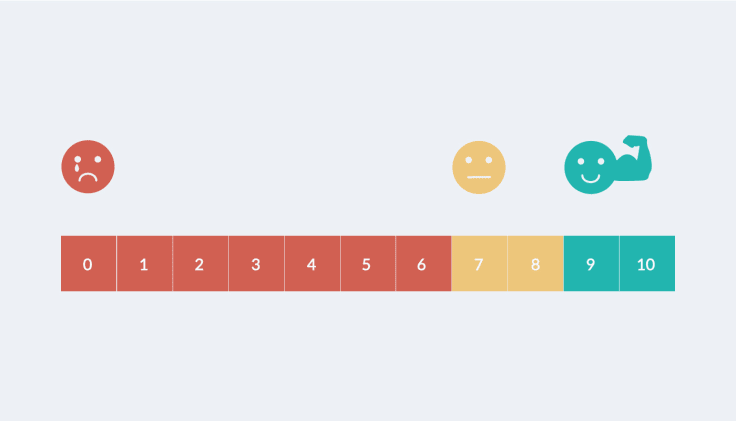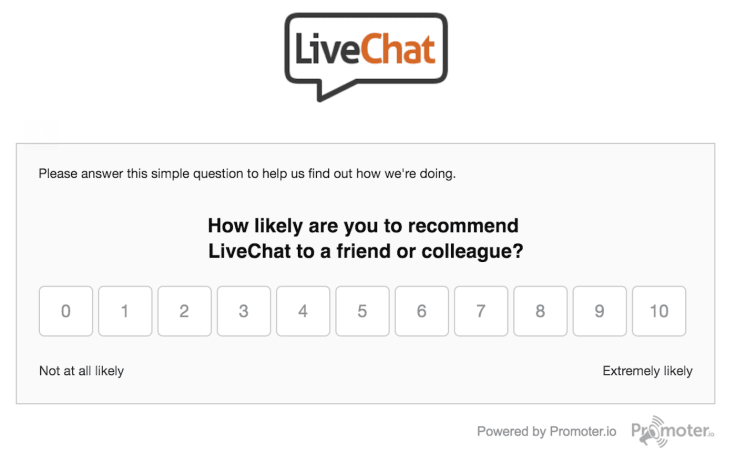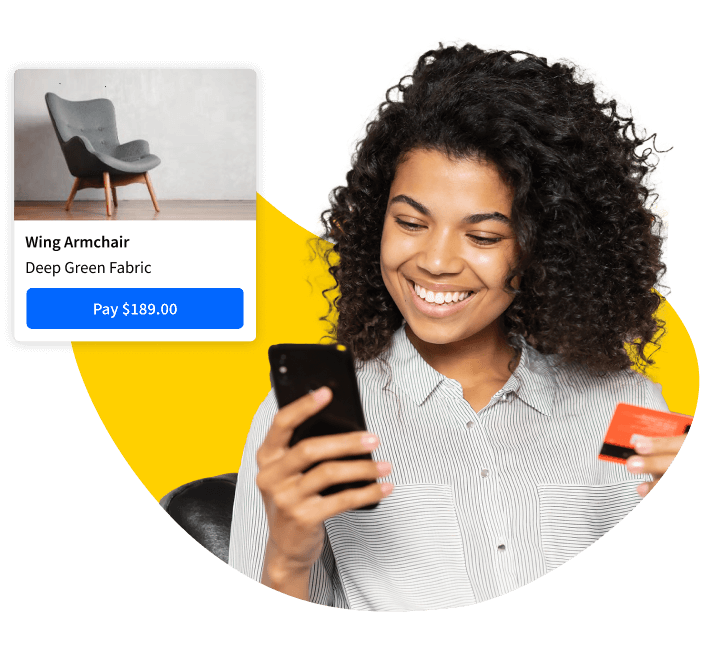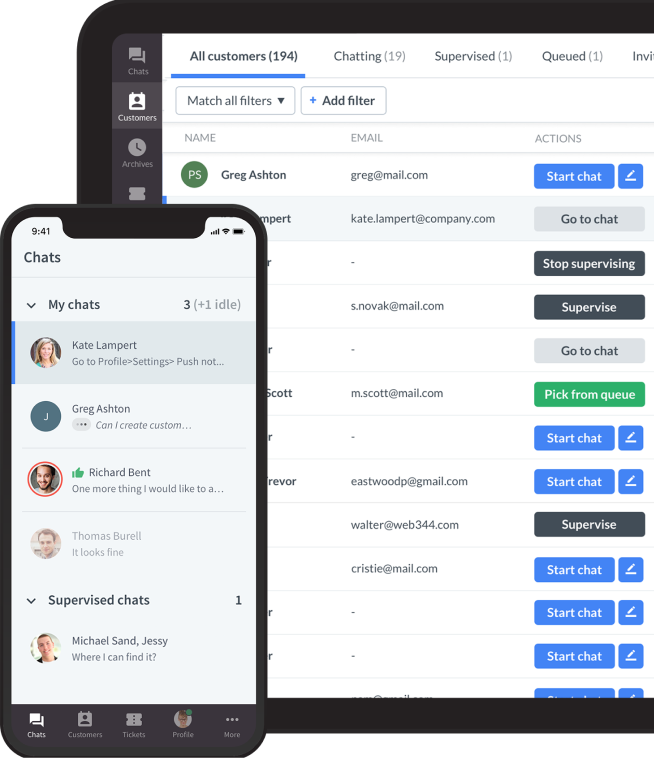Showing top 0 results 0 results found
Showing top 0 results 0 results found


Times when companies used surveys that include tons of questions about a product or service are gone for good. Customers don’t have time to answer these and managers to draw conclusions from them.
That’s why NPS is like a salvation for the SaaS industry. It’s the quickest road they can choose to get customers’ feedback.
What is Net Promoter Score
Net Promoter Score (NPS) is a management tool that is used to measure the loyalty of a company’s customers. This customer loyalty metric was developed by Fred Reichheld, Bain & Company, and Satmetrix Systems.
NPS can measure the loyalty between a provider and a consumer. The provider can be a company, employer or any other entity. The provider is the entity that is asking a question on the NPS survey. The consumer can be the customer, employee, or respondent to an NPS survey.
Although NPS was originally created before the existence of SaaS products, it’s a perfect fit for this type of offering.
According to Dana Severson, Director of Marketing at Promoter.io:
NPS represents the single biggest growth opportunity that exists today for SaaS companies. Up to 80% of your total revenue is driven by referrals (AKA: Promoters), so it's critical to not only identify, but also nurture and grow your advocates.
There are multiple ways in which NPS can help your business.
Priceless feedback
Net Promoter Score gives you quick and reliable feedback from customers.
The way the system works is very easy. By choosing a number from zero to ten, customers need to answer this simple question:
“How likely are you to recommend our company to a friend or a colleague?”

Answer shows how much likely customers are to recommend your company. Zero to six means that the chace the customer will recommend you is very low. Those customers are called detractors. Even though six might seem like a pretty high rate, you should treat it like a warning signal. Detractors have the highest risk of leaving. Pay closer attention to customers in this group to prevent them from leaving.
According to Dana Severson:
If you make NPS part of your workflow by triggering daily surveys, following up (closing the loop) with your customers feedback and using data to create predictive trends, you'll see massive returns.
Reduce churn
Net Promoter Score is a proven way to gain insight into customers’ loyalty to your brand and it helps you to predict their decisions. By taking the time to analyze customers bad rating, you can minimize the risk of other customers’ leaving in the future and increasing your churn rate.
At LiveChat when somebody scores our service at 6, it’s a signal for us that they are not happy and we have to do something about it. We reach out to these customers to find out if there’s something we can do to help them understand and appreciate our product a little better.
You can learn from customers' feedback and react the moment they are likely to leave. This way you increase the chances of good experience your company provides.
Turn your customers into brand advocates
NPS can be used as a referral trigger. 92% of people trust recommendations from friends and family members more than all other forms of marketing. When a customer rates your company at 9 or 10, it’s the perfect moment to reach out to them and ask if they can refer you to their friends.
They can become your brand advocates and help to creative positive word of mouth about your company. You can also ask each one of them who they think you should reach out to introduce your product to.
It might sound like it's “too much” sometimes but trust me, brand advocates really love your service and they are there to spread a good word about it.
Show customers they matter
Drop the thinking that you will annoy customers by sending them a request to your Net Promoter Score survey. Think about it in a different way. It is likely that customers want to give you feedback, but they’re not sure where or they’re too busy to create a new ticket or a new email to start a conversation with you. NPS gives them a chance to rate you in less than one minute.
Also, think about it in forms of creating a customer-centric culture. Customers will see their opinion is important for you which I’m sure they’ll appreciate.
Use feedback to develop your product
You can dig deeper into the comments customers leave you in your NPS. You will find out what your customers are missing in your product, what features they like the most, what features they don’t understand or what you should develop in the future.
Whether you are providing a product or service, listening to the people you are selling it to is a big part for future development. After all, at the end of the day, their opinion should be the most important for you.
One time a customer (Henry) gave us a 10, following with the comment “it’s awesome!” Despite this Daniel (our NPS guy) decided to dig deeper and asked him: If there is anything we can improve in our product please let me know (e.g. what kind of new features do you think would be fun to have).
Henry came up with a new interesting feature for our product. He even sent us some screens of how the whole thing should look like. It turned out to be a great idea for us. Daniel shared this feedback with our development team and they released this feature by the end of the month. How great is this?
Note: If customer proposed some changes or improvements in your product. Once you make them, make sure you notify these customers about it. One small change can make a big difference. It can be surprising and most likely will increase their satisfaction.
Benefits of NPS measuring
If you make NPS part of your workflow by following up with your customers feedback, you’ll see massive returns. Dana Severson
As you see, Net Promoter Score can dispel many doubts about your service just by asking one basic question. It helps you to create a customer-centric culture. This way you build the voice of your customers into your company and build a relationship with them.
If you still consider whether NPS is a good choice for your business think about it this way. Comparing NPS to the surveys with tons of questions is like comparing a whiteboard with clear bulleted goals to the sticky notes all around your desk. And you don’t even remember what’s written where. I think the choice is obvious.







Comments